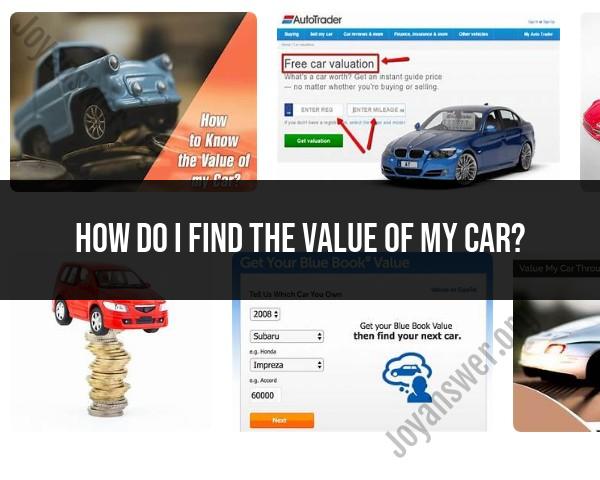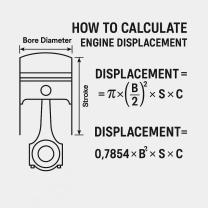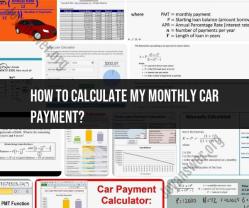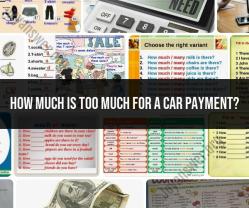How do I find the value of my car?
Whether you're looking to sell, trade, or simply understand the worth of your car, determining its value is a crucial step. Car valuation involves assessing various factors to arrive at an accurate estimate. Here's a comprehensive guide to help you demystify car valuation:
1. Research Online Tools
Start by exploring reputable online car valuation tools. These tools use algorithms and databases to provide estimates based on your car's make, model, year, mileage, condition, and additional features. Popular platforms include Kelley Blue Book (KBB), Edmunds, and NADA Guides.
2. Gather Vehicle Information
Collect detailed information about your vehicle, including its make, model, year, trim level, mileage, and any special features or upgrades. Be honest and accurate when entering this information into the valuation tools.
3. Consider Condition and History
Evaluate your car's overall condition, considering factors such as exterior and interior wear, mechanical condition, maintenance history, and accident or damage history. The condition of your car significantly impacts its value.
4. Compare Similar Listings
Search for similar vehicles for sale in your local area. Compare prices of vehicles with similar make, model, year, and condition. This can give you a better understanding of the market value and help you set a competitive price if you're selling.
5. Account for Market Trends
Be aware of current market trends and demand for specific vehicles. Factors such as seasonal fluctuations, gas prices, and changes in consumer preferences can influence the value of your car.
6. Get a Professional Appraisal
If you're looking for a more accurate valuation, consider getting a professional appraisal. Auto appraisers have expertise in assessing a vehicle's condition and value. Their evaluation can be especially helpful for unique or collectible cars.
7. Factor in Extras and Upgrades
If your car has aftermarket upgrades, special features, or premium packages, these can impact its value. Make sure to include these details when using valuation tools or discussing the value with potential buyers or dealerships.
8. Be Realistic
While sentimental value may be high, it's important to be realistic about your car's market value. Overpricing your car can deter potential buyers, while underpricing can lead to missed opportunities.
9. Consult Dealerships and Buyers
If you're considering selling or trading in your car, visit local dealerships and discuss the potential trade-in value. You can also engage with potential buyers to gauge their interest and negotiate based on the market value.
10. Keep Documentation
Keep all relevant documentation, including maintenance records, service history, and any repairs or upgrades you've made to the vehicle. This information can support your valuation and instill confidence in buyers.
Conclusion
Demystifying car valuation involves a combination of research, assessment, and market awareness. By utilizing online tools, considering your car's condition and history, comparing listings, and seeking professional input, you can confidently determine the value of your vehicle and make informed decisions.











